The 2015 SCOTUS Awards: A Look Back at the Highs, Lows and Yearly Shenanigans of the Supreme Court
Justice Antonin Scalia earned his stripes as the court’s loosest cannon for his remarks on Obamacare and same-sex marriage, while Justice Clarence Thomas was honored for making it through his ninth year without asking a single question during oral arguments.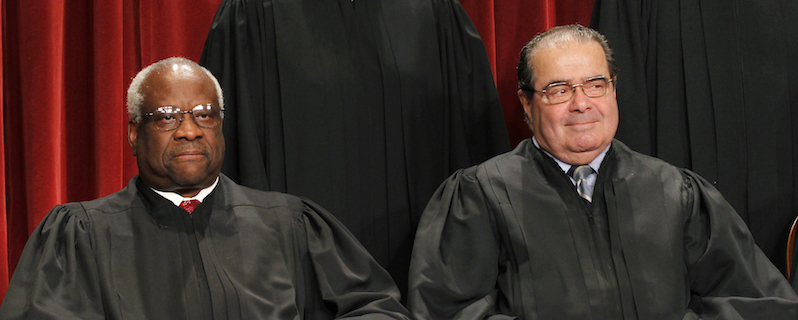 Supreme Court Justices Clarence Thomas and Antonin Scalia in Washington in 2010. (Pablo Martinez Monsivais / AP)
1
2
3
4
5
Supreme Court Justices Clarence Thomas and Antonin Scalia in Washington in 2010. (Pablo Martinez Monsivais / AP)
1
2
3
4
5
Breyer’s opinion marked the first time since the late Justice Harry Blackman’s 1994 dissent in a case from Texas that a sitting member of the court has formally taken an abolitionist stance on the death penalty.
The importance of Breyer’s call to action was lost on no one, least of all Scalia, who detonated a particularly juvenile and mean-spirited concurrence that began with the salutation: “Welcome to Groundhog Day.” From Scalia’s twisted perspective, condemned prisoners like Glossip have no business taking up the court’s precious time over and over with doomed objections to being executed. Channeling the spitefulness of Eric Cartman, the schoolyard bully from the hit “South Park” cartoon series, Scalia branded Breyer’s handiwork a form of intellectual “gobbledygook.”
Somewhat lost in the war of words was Glossip himself. He remains under a sentence of death, although his execution has been stayed, pending a review of the Oklahoma protocol by the state’s attorney general.
SUPPORT TRUTHDIG
The Golden Gavel for Expanding Constitutional Rights
The nod goes to the court’s perennial swing voter, Justice Anthony Kennedy, for his 5-4 majority opinion on same-sex marriage in Obergefell. “The nature of injustice,” Kennedy instructed in prose that directly conflicted with Scalia’s “originalist” theory of constitutional law, “is that we may not always see it in our own times. The generations that wrote and ratified the Bill of Rights and the 14th Amendment did not presume to know the extent of freedom in all of its dimensions, and so they entrusted to future generations a charter protecting the right of all persons to enjoy liberty as we learn its meaning.” Citing Loving v. Virginia, the 1967 case that invalidated state bans on interracial marriage, Kennedy held that couples seeking to wed have a fundamental right to “equal dignity in the eyes of the law” that only marriage can bestow. In so ruling, he struck a blow not only in support of LGBT rights but on behalf of everyone who believes that the Constitution should be regarded as a “living” document with protections that expand over time. As historic as the Obergefell ruling was, however, Kennedy earns a gold rather than a platinum trophy because the ruling actually was modest from a technical standpoint. In particular, Kennedy stopped short of holding that sexual orientation generally — like race, national origin and religious affiliation — is a “suspect classification” entitled to the highest degree of judicial scrutiny and protection. Writing in The Guardian after the opinion was released, columnist Scott Lemieux said it well when he noted: “The refusal to define sexual orientation as subject to heightened scrutiny will lead to unnecessary confusion, and possibly permit federal and state judges to deny LBGT rights claims [in other contexts] that even Kennedy might think should be upheld.” True to Lemieux’s forecast, the struggle for LGBT equality has persisted in Obergefell’s aftermath in a host of areas, including discrimination in employment and public accommodations, service refusals by florists and photographers, and even attempts by local officials (we’re talking about you, Kim Davis) to personally block the issuance of same-sex marriage licenses. So kudos to Kennedy, but much work remains unfinished.The Blue Ribbon for Court Management
The honor — and I can hear the gasps and groans — is awarded to Chief Justice John Roberts. In general, I’m no Roberts fan — and for good reason. Since he was appointed to his post in 2005, the court has amassed a profoundly conservative overall track record. Your support matters…Independent journalism is under threat and overshadowed by heavily funded mainstream media.
You can help level the playing field. Become a member.
Your tax-deductible contribution keeps us digging beneath the headlines to give you thought-provoking, investigative reporting and analysis that unearths what's really happening- without compromise.
Give today to support our courageous, independent journalists.

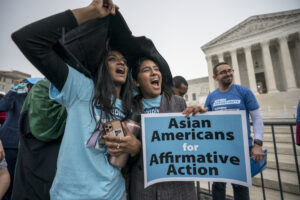
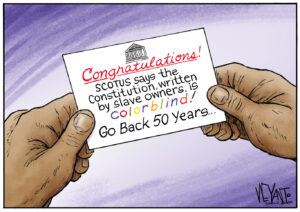
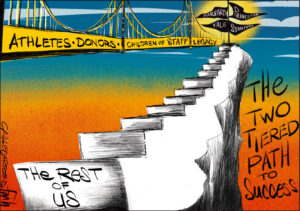

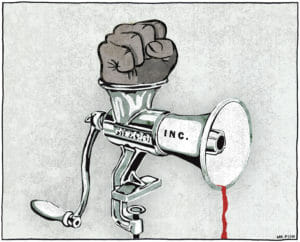
You need to be a supporter to comment.
There are currently no responses to this article.
Be the first to respond.